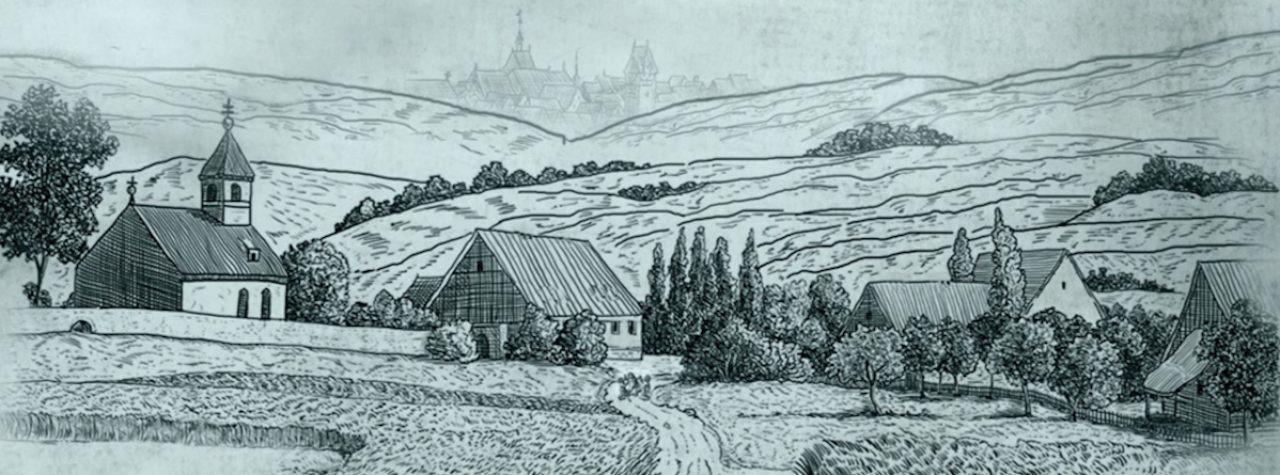Over the years that I’ve been writing historical fiction, I’ve read a few opinions about it that might have convinced me to abandon the whole business! In this third and final blog post on the so-called “problems” of historical fiction, I consider the view that it often fails to portray the strangeness of the past.
What is this “strangeness”? It refers to the otherness of past times, those aspects of life, in particular mindsets and behaviours, that are unfamiliar or obscure to the modern reader. So it will include differences in attitudes and beliefs but also, for an historical novel set in the mediaeval period, such things as superstition, religious charms, dreams, magic and spells, monsters and mediaeval art (illuminations, misericords, church paintings), strange ideas and seemingly fantastical happenings that today could be readily explained or dismissed – all of which were normal to people of the time. In other periods, the list might be a bit different, but would still include those things that make that period seem “other” to our own.
Strangeness is important in an historical novel, but must perhaps not overwhelm. As Jerome de Groot has said, by exploring the differences of the past compared to the present, historical fiction can make the past ‘authentically unfamiliar’, and yet still recognisable to modern readers.1
The people we encounter on the pages of historical novels are of course familiar to us in many ways: they are mothers and fathers, farmers and carpenters, soldiers and merchants, people with families and concerns and feelings much like our own. But their environment, their habits, their attitudes and beliefs are mostly very different, and it is this dissimilarity, as well as the familiarity, that an historical novelist seeks to portray. Sarah Johnson describes this as making ‘the unfamiliar seem familiar’, and the one must be as carefully managed as the other.2
However, it is perhaps true that not all historical novelists are entirely successful at achieving this. I imagine we have all read novels that we thought didn’t seem quite “right” for the period, in particular where characters seemed to have far too modern a mindset – overly liberated women, unbelievably “new” men…
In Clio’s Children, a blog for historical novelists, the writer John Yeoman proposes an interesting split between types of historical fiction. One kind, he says, ‘depicts modern people, sensibilities and conflicts but…cloaks them expediently with props from history’s wardrobe: ruffs and farthingales, gibbets and jousts; the other exposes the reader to a profound whiff of strangeness.’3 Yeoman cites a number of novels where, in his view, strangeness can be found, including Umberto Eco’s The Name of the Rose, and I would guess that most of us would agree that the world in Eco’s novel is decidedly “other”.

On the other hand, Yeoman says ‘we do not find it in Philippa Gregory’. He refers to The Other Boleyn Girl as ‘a sentimental blend of history and kitsch’, so one must assume that, for him, this novel falls into the “props” category.

However, I must say that Yeoman insists that he is not implying any value judgment in defining the two types, rather just illustrating the differences between them. And it is of course true that readers get a huge amount of pleasure from all types of historical fiction, so is any lack of strangeness a “problem” at all?
So, to summarise this blog thread on potential “problems” with historical fiction…
I have seen it said: that we living in the present can never fully understand the inner lives of people living in the past and therefore may not be able to portray their thoughts and voices with any degree of authenticity; that historical fiction is in itself a contradiction, lies pretending to be the truth; and that some historical novels fail to reflect the strangeness of the past, dressing their characters in authentic-looking clothes but giving them modern sensibilities.
In general, I do not believe that historical fiction suffers from such “problems” any more than any other type of fiction. Indeed I feel that these problems might equally apply to many types of contemporary fiction. For example, in science fiction, thrillers, murder mysteries and fantasy, novelists attempt to portray all sorts of characters’ inner lives that neither they nor the reader could actually experience. All novels of whatever genre are essentially “untrue” – they are fiction! Even the need for strangeness is not confined to historical fiction, but is required in any novel portraying a world, in time or space, that is different from readers’ usual experience.
Having said all that, when I started writing, I did have some concerns about my own ability to produce an historical novel with sufficient authenticity and strangeness. For, although I was reasonably confident about describing the practicalities of the past, I remained nervous that I might fail to portray my characters’ inner lives truthfully, that they might seem to be modern rather than people of their time, and that the world I was attempting to evoke might not be sufficiently “other”.
Whether I have succeeded or failed is for others to say, but I would be interested to hear any thoughts from fellow historical fiction writers about their own experiences of portraying earlier times.
(Note: I discuss this and other aspects of writing historical fiction in my PhD thesis, Authenticity and alterity: Evoking the fourteenth century in fiction, University of Southampton, Faculty of Humanities, 2015 <http://eprints.soton.ac.uk/383484/>)
1. Jerome de Groot, The Historical Novel (Abingdon: Routledge, 2010), p.3.
2. Sarah L. Johnson, Historical Fiction: A Guide to the Genre (Westport: Libraries Unlimited Inc., 2005), p.5.
3. John Yeoman, ‘How do we define ‘historical fiction’? A modest proposal’, Clio’s Children (25th April 2010) <clioschildren.blogspot.co.uk/2010/04/how-do-we-define-historical-fiction.html>.

Pingback: The problem with historical fiction (III) | Mountain Hares & Moonlit Roses